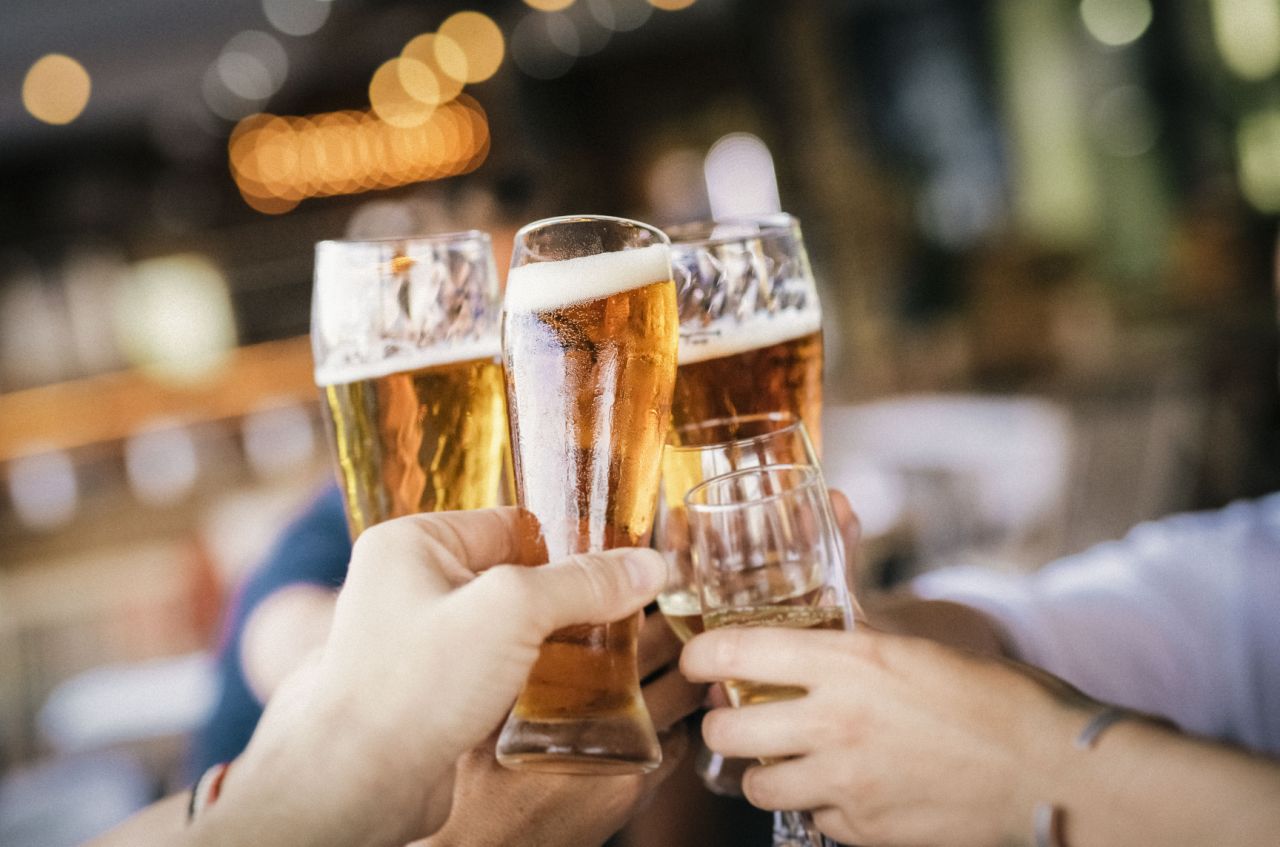Alcohol is behind hundreds of thousands of hospital admissions in England every year, research suggests.
NHS Digital data shows drinking excessively was the “main reason” for 380,000 hospitalisations in 2018/19.
This is 6% higher than 2017/18 and a 19% increase on a decade ago, statistics show.
READ MORE: Two alcoholic drinks a day ‘is not safe’
Alcohol affects “almost every part of your body”, according to the NHS.
One heavy night puts a drinker at risk of accidents, unsafe sex and a nasty hangover the next day.
Overtime, excessive alcohol consumption can damage organs and weaken the immune system.
It has also been linked to a range of conditions, including liver disease, high blood pressure, breast cancer and infertility to name a few.
Men and women are both advised to have no more than 14 units of alcohol a week.
While it comes down to the size of the glass and strength of the tipple, this equates to around six glasses of wine, six pints of beer and 14 glasses of spirits.
READ MORE: A pear, lime and coconut water smoothie could be the ‘ultimate hangover cure’
Overall, the NHS data shows alcohol-related admissions made up 2% of hospitalisations in 2018/19, the same as the year before.
Men comprised nearly two-thirds (62%) of cases, while 40% were aged between 45 and 64.
These figures are based on incidences where an “alcohol-related disease, injury or condition was the primary reason for a hospital admission or there was an alcohol-related external cause”.
When looking more broadly at other conditions indirectly caused by alcohol, excessive drinking made up 1.3 million admissions in 2018/19 – 7% of all hospitalisations.
This is an 8% increase on 2017/18.
In better news, alcohol-related deaths declined by 2%.
In those that did occur, more than three quarters (77%) of the deceased were aged 40-to-69.
The middle-aged were found to be the most likely to drink too much, with 38% of men and 19% of women aged 55-to-64 “usually” consuming more than 14 units a week.
READ MORE: Does some alcohol cause worse hangovers than others?
“Historically one of the biggest barriers to comprehensive alcohol strategies


![Men and women are both advised to have no more than 14 units of alcohol a week. [Photo: Getty]](https://s.yimg.com/ny/api/res/1.2/0p5_Lv9COhikzijeDU6aBg--/YXBwaWQ9aGlnaGxhbmRlcjt3PTcwNTtoPTQ2Ny4wMDc2Njg5MzM1ODQx/https://s.yimg.com/uu/api/res/1.2/uJ2q20G04PXBnQ7NApKuKg--~B/aD00NTc4O3c9NjkxMTtzbT0xO2FwcGlkPXl0YWNoeW9u/https://media-mbst-pub-ue1.s3.amazonaws.com/creatr-images/2020-02/40293370-474c-11ea-b6ac-faf0059bdabb)